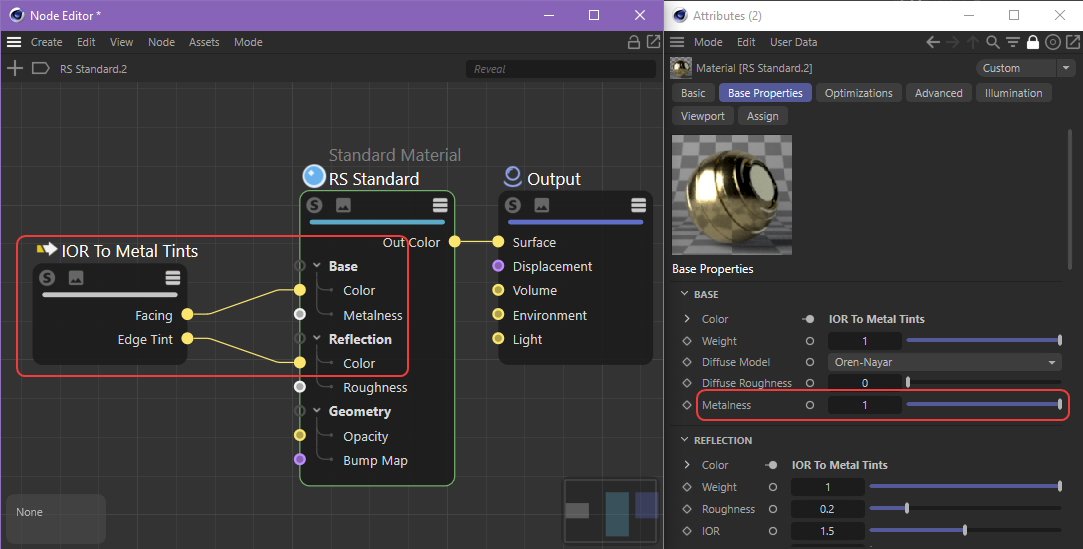
IOR To Metal Tints
Table Of Contents
The Redshift Material offers a built-in IOR (advanced) fresnel type for reflections that allows you to enter separate IOR and absorption values for the red, green, and blue channels in order to control the color of metallic objects.
The Redshift Standard material does not have this fresnel type built-in but the IOR to Metal Tints node allows for the same functionality by outputting separate facing and edge tint colors that are then connected to a Standard material's Base Color and Reflection Color while Metalness is being used.
The scientific values to use can seem non-intuitive for conductors, but can be found at this website:
http://refractiveindex.info/,
Here you can compute the IOR and k values and use them in the relevant parameters covered below.

|
Standard Material settings recommended for use with IOR to Metal Tints:
Metalness: 1
Base Color controlled by Facing Color
Reflection Color controlled by Edge Tint
Metalness must be used in the Standard Material in order for reflection color to affect the edge tint only.
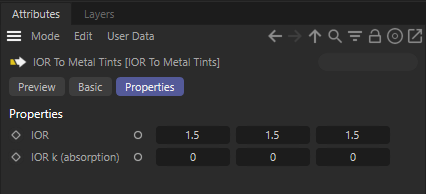
|
Individual Index of Refraction values for red, green and blue channels can be set to control the reflectivity color for both dielectric materials (i.e. non-metals) and metals, while remaining physically correct.
The absorption coefficients for complex IOR materials, this is primarily used for metallic materials.
Note that dielectric materials should always set the IOR k (absorption) to (0.0, 0.0, 0.0).
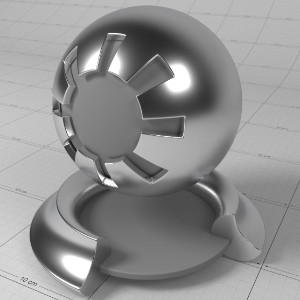
|
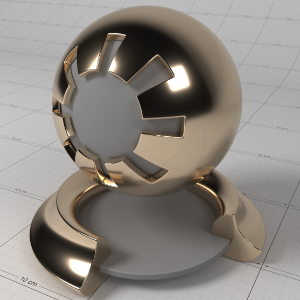
|
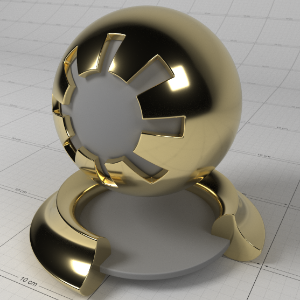
|
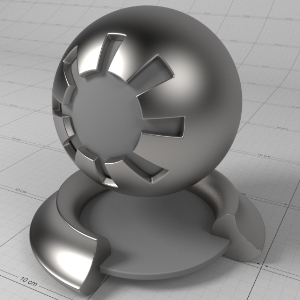
|
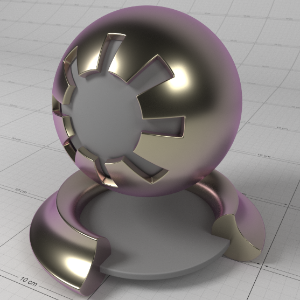
|
|
Aluminuium |
Copper |
Gold |
Iron |
Two-tone example |
The resulting color for the parts of an object directly facing the camera based on the provided IOR values.
Facing color should be connected to the Base Color of a Standard Material.
The resulting color for the parts of an object facing away/perpendicular from the camera based on the provided IOR values.
Edge Tint color should be connected to the Reflection Color of a Standard Material.